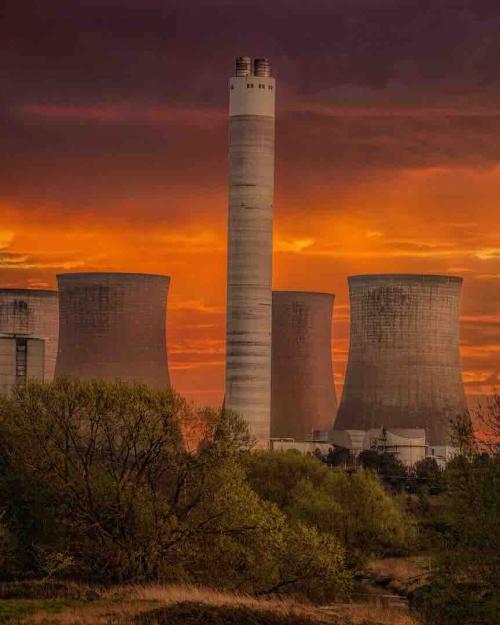The environmental and economic impacts of Bitcoin mining will be explored during a Sept. 23 event on campus.
“In the Shadow of Crypto: Taking on Bitcoin Mining” is presented by the Milstein Program in Technology & Humanity and will take place at 5 p.m. in the Hollis E. Cornell Auditorium, Goldwin Smith Hall Room 132.
"The dizzying rise of cryptocurrency in the U.S. has brought with it a new industry – bitcoin mining, where thousands of computers in former gas plants and even abandoned dollar stores solve complex math problems to get rewarded with new coin," said Austin Bunn, associate professor of performing and media arts and director of the Milstein Program in the College of Arts and Sciences. "But this digital innovation comes with real-world consequences.”
Bitcoin mining consumes 2.3% of all U.S. electrical demand — as much as Argentina or six million American homes annually – and is on track to hit 8% by 2030. After Texas and Georgia, Upstate New York is the top location for mining operations.
“What are the regional environmental and economic impacts of these mines?” Bunn said. “I'm excited to learn more from those who have studied them, regulated them and live in their shadow."
Bunn will moderate the panel discussion, which will include:
- Yvonne Taylor, co-founder and vice president of Seneca Lake Guardian, a citizen group focused on protecting the Seneca Lake watershed and the Finger Lakes region. Taylor and the group fought to keep gas drilling out of the Hector National Forest, worked to help ban fracking in New York state and partnered with others across the state to pass a statewide moratorium against the use of fossil fuel burning power plants for bitcoin mining while an environmental impact study is underway. She is one of the central activists organizing a call to stop bitcoin mining at the Greenidge power plant near Dresden, N.Y.;
- Colin Read, professor of economics and finance at SUNY Plattsburgh and the author of “The Bitcoin Dilemma: Weighing the Economic and Environmental Costs and Benefits”; and
- Owen Marshall, visiting assistant professor in the Department of Science & Technology Studies (A&S). Marshall works at the intersection of sound studies, media archaeology and the sociology of science and technology.
"Crypto mining preys on unsuspecting towns by exaggerating the impact of new jobs and revenue, while ignoring concerns about wasteful energy practices, higher electricity rates, increased emissions, enormous water consumption, high noise levels and massive amounts of electronic waste," Taylor said. "Despite their adverse impacts on the climate and neighboring communities, crypto miners continue to face virtually no oversight or regulation and remain eligible for subsidies and tax breaks, benefiting no one but their own bottom line.”
Marshall said he’s been conducting interviews and doing participant observation research within the grassroots movement against crypto-mining since early 2022.
“It has been fascinating to witness the founding and growth of the National Coalition Against Crypto-mining, which arguably began with the Bitcoin mining power plant controversy on Seneca Lake,” he said, adding that he hopes the talk will help people develop a more informed and critical awareness of crypto-mining's impacts.
The panel discussion is open to the public and will be followed by a reception in the Klarman Atrium in Klarman Hall. The event is cosponsored by the Rural Humanities initiative (A&S).




